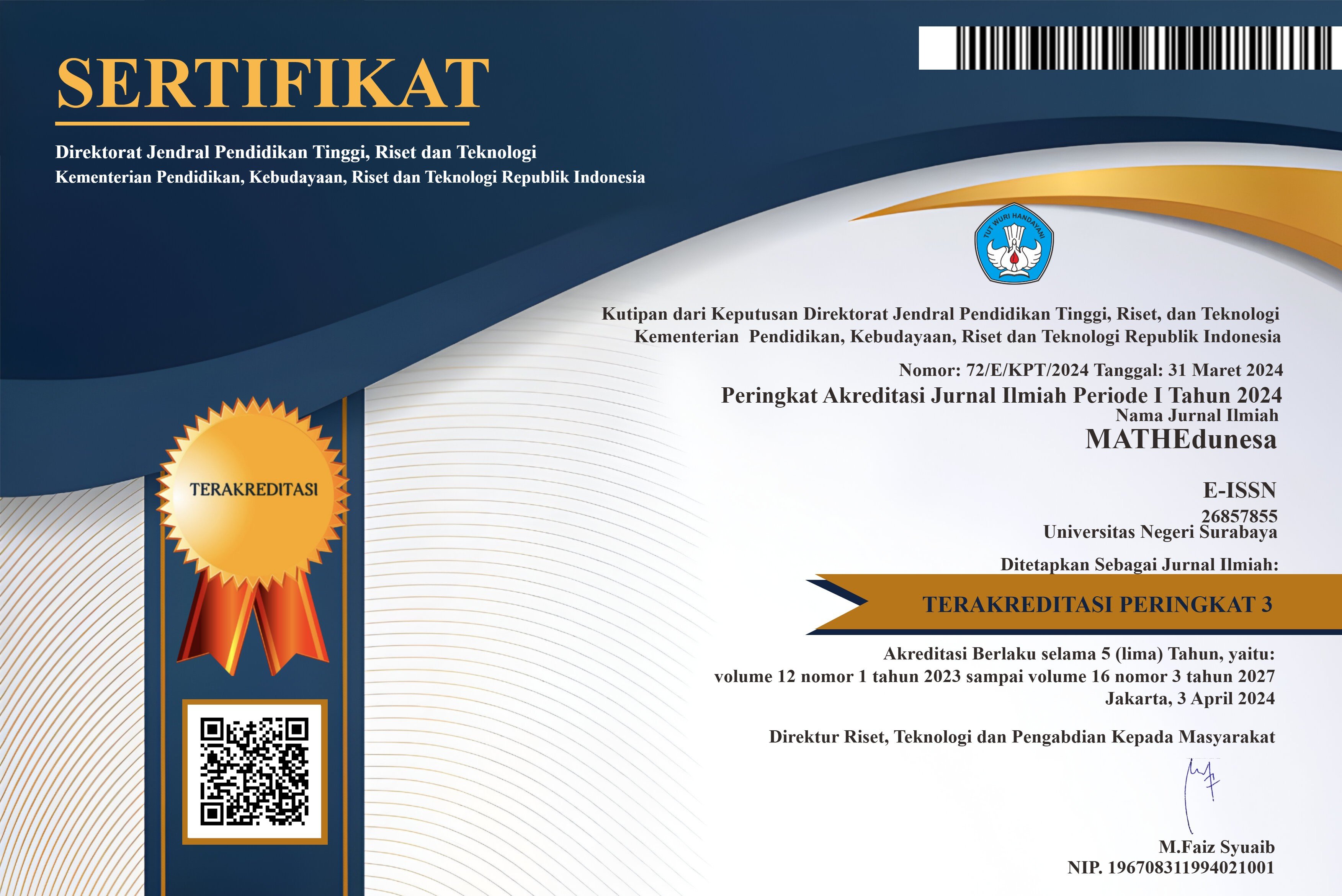Mathematical Communication Ability Profile of Linguistic Intelligence and Logical-Mathematical Intelligence Students in Solving Task
DOI:
https://doi.org/10.26740/mathedunesa.v8n2.p134-141Abstract
Abstract
One of the skills that is needed in the 21st century is communication skills. In mathematics learning, students need to develop communication skills. Intelligence is one of the internal factors that affects students communication skills. There are two types of intelligence that needed in mathematical communication skills, namely linguistic intelligence and logical-mathematical intelligence. The purpose of this study is to describe mathematical communication skills of linguistic and logical-mathematical students in solving task. Mathematical communication skills is the ability in the process of conveying mathematical ideas using symbols, terms, or notations in solving mathematical task verbally or in writing that are assessed from aspects of accuracy, complexity, and fluency. This type of research is qualitative descriptive. The researcher used quantitative and qualitative data. Data collection techniques that be used are questionnaires, tests, and interviews. In the process of data collection on mathematical communication skills, the data will be tested for validity by using time triangulation. The results showed that the mathematical communication ability profile of linguistic intelligence students in solving task is the student can convey mathematical ideas using symbols, terms, or notations in solving mathematical task verbally or in writing fluently but inaccurately and not complete. While, the mathematical communication ability profile of logical-mathematical intelligence students in solving task is the student can convey mathematical ideas using symbols, terms, or notations in solving mathematical task verbally or in writing completely and fluently but inaccurately.
Keywords: Mathematical communication ability, Linguistic and Logical-mathematical
Downloads
Downloads
Published
Issue
Section
 Abstract views: 108
,
Abstract views: 108
, PDF Downloads: 164
PDF Downloads: 164




